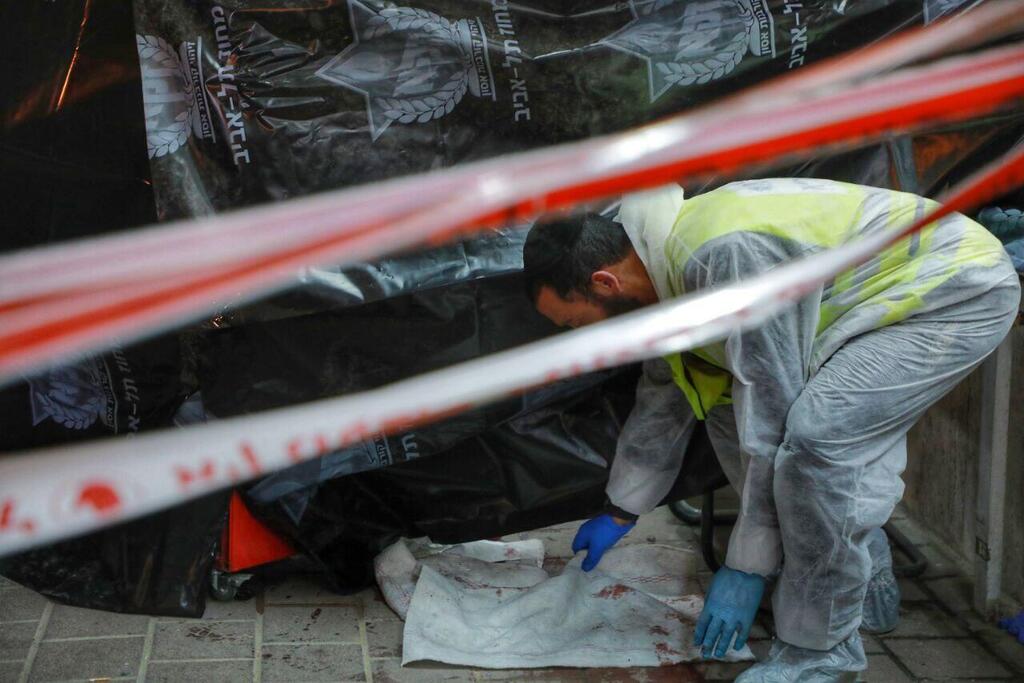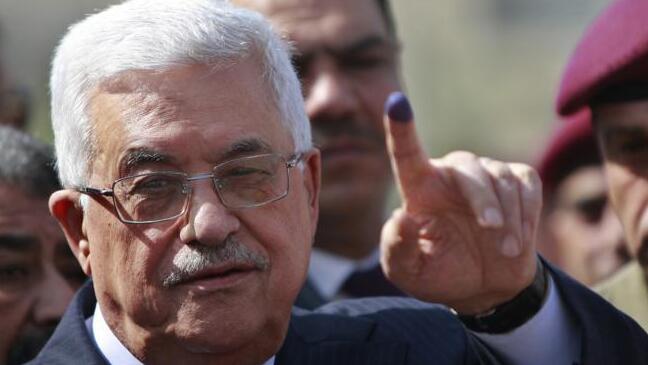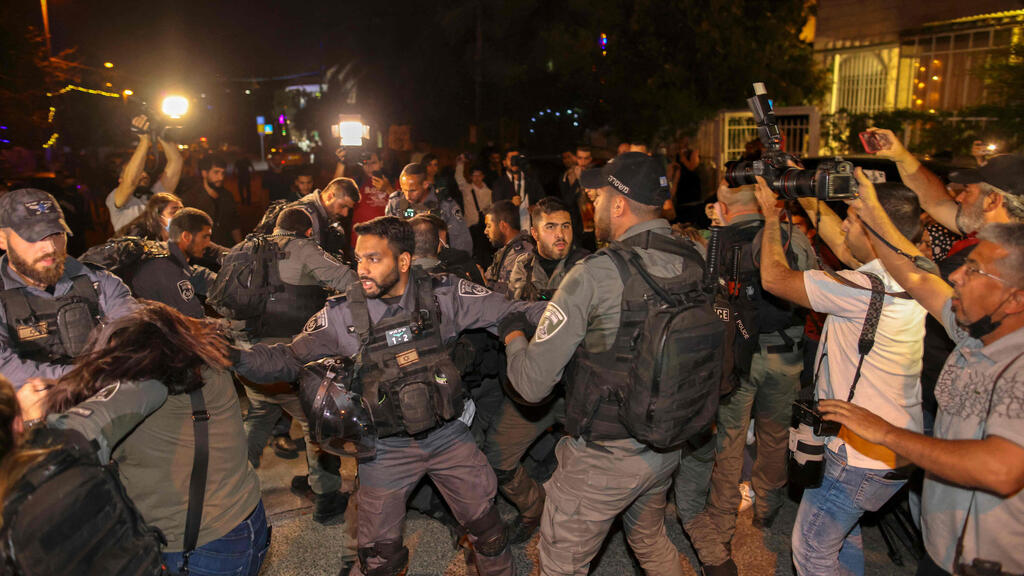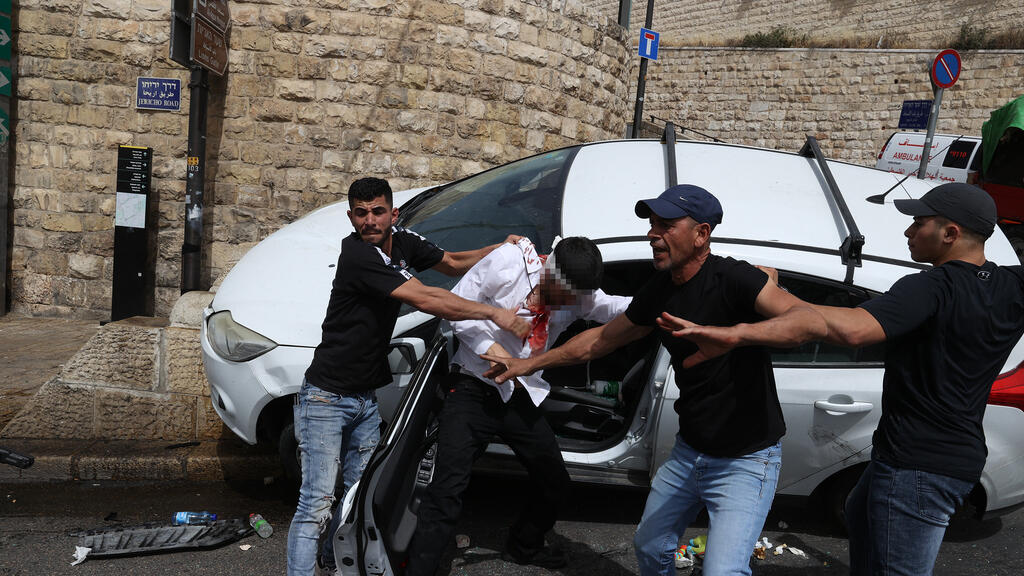One is saddened by the deaths of Israelis and Palestinians. Even at a time when the world has been focused on the war in Ukraine, death has continued to reap the innocent civilians in our troubled part of the world.
We need to think outside of the box and leaders must find ways to help break this unending cycle of violence not by looking for who to blame but by giving people hope.
8 View gallery
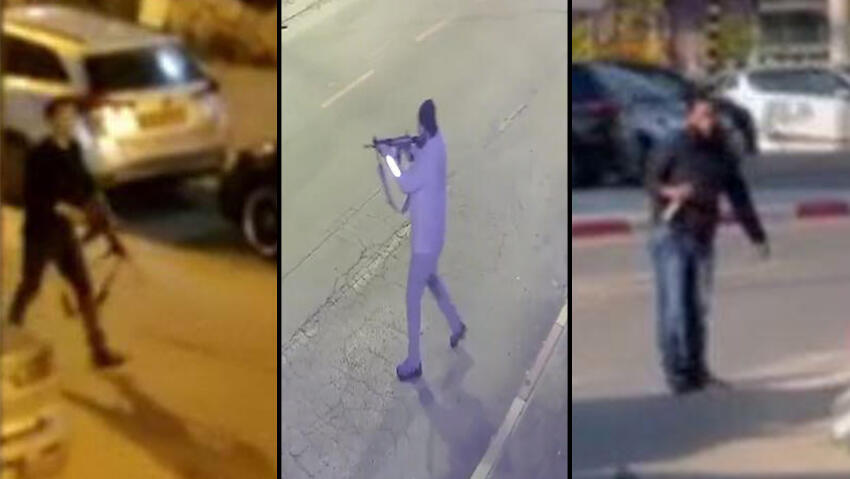

The three terrorists responsible for the attacks in Bnei Brak, hedera and Be'er Sheva
While Israelis are angry about the killing of their people, it is important that the record of what is happening in the Palestinian territories be known to Israelis.
After all, they elect the government whose defense minister is responsible for every facet of Palestinian life in the West Bank, Gaza and East Jerusalem.
For the record and according to the UN, in 2022 alone, 15 Palestinians, including children, were killed; Israeli forces injured 1,733 Palestinians; 128 Palestinian-owned structures were demolished; 95 Palestinians were displaced; there were three Israeli incursions into Gaza; and Israeli settlers committed 93 attacks against Palestinians.
8 View gallery
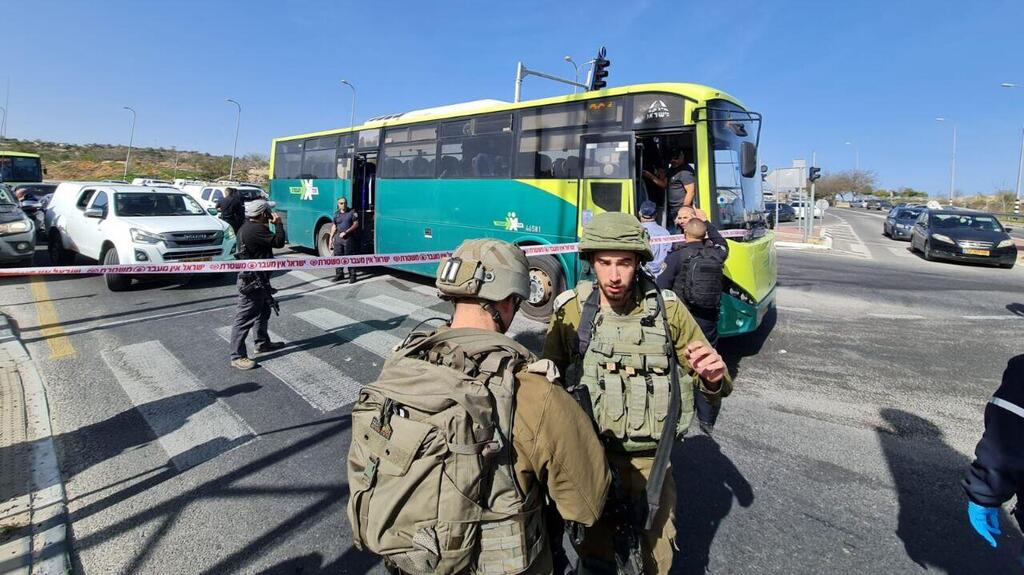

The scene of a stabbing attack in the West Bank, March 31
(Photo rescuers Without Borders)
Just in the past month alone, Israeli forces shot and killed three Palestinians, including two children. Palestinian life has continued to be dominated by the Israeli occupation.
But this cycle of violence should not be allowed to continue spinning out of control. There is a need for courageous statespersons who are willing to make difficult decisions for the future of the two peoples.
Palestinian and Israeli leadership takes one of two forms. There are those who genuinely want peace, understand that peace means deep political compromise, and are not deterred by radicals and their abhorrent actions.
On the other hand, there are those who believe in the zero-sum game and have no interest in any compromise. If they are genuine in their beliefs, those of the first group must insist on refusing to allow radicals to change their path.
The current situation shows us, unfortunately, that the second group uses the other side’s radicals to accomplish their absolutist goals.
Whether one likes it or not, we have in Ramallah today a Palestinian leader of the first group while in Israel there is sadly a leadership of the second group. For one short period, there were leaders in Israel who belonged to the first group, but they are no longer in power.
The Palestinian leader Mahmoud Abbas has refused strong internal pressure to change. He was pressed to end the security cooperation with Israel but refused.
What was the reward for the Palestinian leader’s courageous act? It was seen as a weakness and in the absence of a courageous and open press and real Israeli leaders, it allowed for the radicalization of Israeli society.
8 View gallery
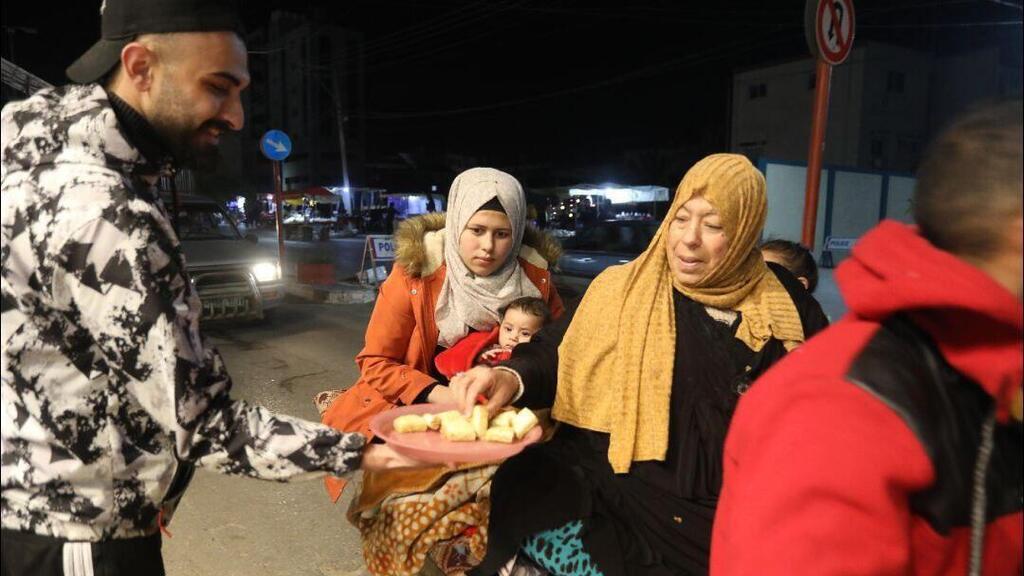

Palestinians in Gaza celebrating the terror attack that killed 5 in Bnei Brak on Tuesday
(Photo: Courtesy)
There has been an increase in settler violence and continued provocations in Sheikh Jarrah and Al-Aqsa Mosque.
In Israel today, there is a coalition government headed by a person who has publicly boasted that he is not even interested in meeting with the Palestinian leadership, let alone negotiating a serious compromise. So, when radicals act, the Israeli leadership doubles down and makes things even worse.
At one time, there were leaders who understood the need for genuine moderates to work together against the radicals. When Yitzhak Rabin faced a similar situation with Hamas militants trying to torpedo the peace process, he made his famous statement: “We must fight terrorism as if there’s no peace process, and work to achieve peace as if there is no terror.”
In every meeting that the Palestinian leadership has had with Israeli ministers (there have been no meetings with the prime minister), Palestinians have stressed the importance of giving the public reasons for optimism.
They warned that the absence of a political horizon would be disastrous. The Americans made the very same argument and Washington also spoke loudly about the dangers caused by Jewish settler violence and their terrorizing of Palestinians. But there was no response to the pleas made by Palestinians and Americans.
In Arabic, there is a saying: fil harakeh barakah (in movement there is a blessing). Political and diplomatic movement of the peace process would certainly be a blessing.
Of course, this doesn’t mean that what is needed is the fake movement of the peace process, as there was for years under former premier Benjamin Netanyahu.
What we need is a genuine effort to move the peace process toward its natural conclusion of ending the Israeli occupation and the illegal colonial settlement enterprise that is chopping away Palestinian land. Every Palestinian sees the settlements grow and the settlers get more violent, while Israeli politicians avoid any effort to make peace; they are frustrated. The absence of hope is the most powerful motivation for radicalization.
8 View gallery
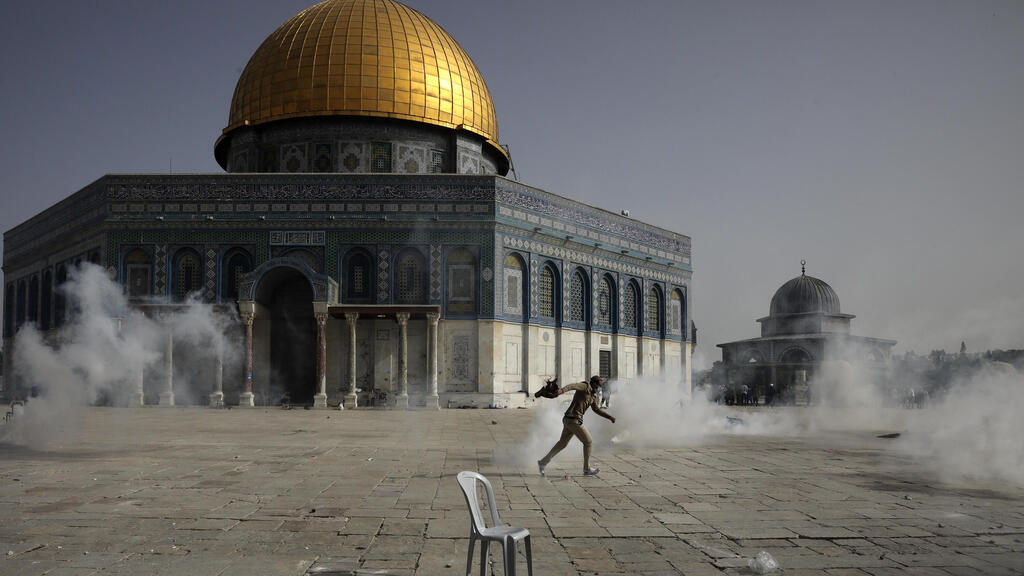

A Palestinian runs away from tear gas during clashes with Israeli security forces in front of the Dome of the Rock Mosque at the al-Aqsa Mosque compound
(Photo: AP)
This is why many Palestinians opposed the Negev Summit meeting. It was not because Palestinians don’t wish for reconciliation with the Arab world but because the effort, like the Ukrainian mediation, is an escape from reality.
Sure, everyone living in the Middle East should have normal relationships with each other, be able to move where they want, marry and live with whomever they love, and not suffer collective punishment because they happen to live in Gaza or the West Bank.
Palestinians who want to have a better life for themselves and their families were not excited about the so-called economic peace because everyone knew that this was yet another act of avoiding the present reality.
Economic peace requires openness and stability. Neither can be had until the underlying political issues are dealt with honestly, fairly, and courageously. Avoidance and denial will not make them go away.
At the same time, the collective punishment of Palestinians can’t be responded to by haphazard killings in Israeli towns. Those killed were civilians who have families that will mourn them. The political atmosphere might have been poisoned by the absence of a peace process and a continuation of Israeli humiliation and discrimination against Palestinians, but this doesn’t justify the random shootings and stabbings of Israeli civilians.
The bottom line is very clear: Peace requires courage and unity between moderate leaders. At the same time, the public needs to be given reasons for hope.
Without this, the alternative is frustration and helplessness, caused by the absence of a genuine effort to end the occupation and provide a solution that allows for a safe Israel and a free Palestine.
Op-Ed reprinted with permission from The Media Line - written by Daoud Kuttab, an award-winning Arab journalist and former Ferris Professor of Journalism at Princeton University


